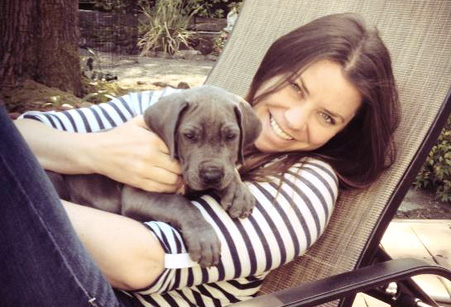 [1]
[1]PORTLAND, Ore. (BP) — Terminally ill cancer patient and right-to-die advocate Brittany Maynard ended her own life Nov. 1 at her Portland, Ore. home, taking a lethal prescription administered under Oregon’s Death with Dignity Act.
 “Today is the day I have chosen to pass away with dignity in the face of my terminal illness, this terrible brain cancer that has taken so much from me … but would have taken so much more,” was Maynard’s Facebook post on the day she died. “The world is a beautiful place, travel has been my greatest teacher, my close friends and folks are the greatest givers. I even have a ring of support around my bed as I type … Goodbye world. Spread good energy. Pay it forward!”
“Today is the day I have chosen to pass away with dignity in the face of my terminal illness, this terrible brain cancer that has taken so much from me … but would have taken so much more,” was Maynard’s Facebook post on the day she died. “The world is a beautiful place, travel has been my greatest teacher, my close friends and folks are the greatest givers. I even have a ring of support around my bed as I type … Goodbye world. Spread good energy. Pay it forward!”
The 29-year-old died in her bed at home 11 months after being diagnosed with gioblastoma multiforme. Her oncologist told her in April she had about six months to live.
Maynard’s decision to take the deadly prescription stands in sharp contrast to 13-year-old cancer victim Ethan Hallmark of Midlothian, Texas, who died Sept. 26 after a four-year battle with an aggressive form of Neuroblastoma, a pediatric cancer.
Before his death, Hallmark recorded a message proclaiming faith in God, and exhorting others to trust in our Lord.
“Keep putting your faith in God and always remember he is with you even in the depths of suffering,” Hallmark said in a video. “He’s good.”
Hallmark encouraged others through his suffering.
“Even though my cancer’s been a lot of bad stuff, it’s been a lot of good stuff too,” the teenager said. “I met friends I would have never met. I’ve grown closer to God; my family has. I wouldn’t trade my relationship with God for anything.”
Hallmark’s story is captured in a 45-minute video that can be viewed on the I Am Second website, at http://www.iamsecond.com/seconds/ethan-hallmark/.
Maynard had described her pending death as a relief, aimed at avoiding the disease’s symptoms that would have included loss of bodily functions. Already, she suffered seizures and extreme headaches and neck pain.
“I can’t even tell you the amount of relief that it provides me to know that I don’t have to die the way that it’s been described to me that my brain tumor would take me on its own,” she said in a Brittany Maynard Fund video. “I hope to enjoy however many days I have left on this beautiful earth and spend as much of it outside as I can surrounded by those I love. I hope to pass in peace. The reason to consider life and what’s of value is to make sure you’re not missing out. Seize the day. What’s important to you? What do you care about? What matters? Pursue that, forget the rest.”
Many Christians and pro-life advocates had discouraged Maynard’s decision.
“I understand she may be in great pain, and her treatment options are limited and have their own devastating side effects, but I believe Brittany is missing a critical factor in her formula for death: God,” author, disability advocate and quadriplegic Joni Eareckson Tada wrote in a Religion News Service article. “The journey Brittany –- for that matter, all of us –- will undertake on the other side of death is the most important venture on which we will ever embark. So it must not be disregarded or brushed aside without thinking twice about the God who alone has the right to decide when life should begin and end.”
Right-to-die advocates will likely use Maynard’s story to promote their cause, pro-life attorney and euthanasia expert Wesley Smith said after Maynard’s death.
“Expect suicide advocates to now use her death to stoke emotions even higher around the assisted suicide debate,” Smith told Lifenews.com. “But emotionalism is the last approach that should be taken in pondering such a radical, culturally transforming agenda and the threat legalized assisted suicide poses to the most weak and vulnerable among us.”
“But, of course, I am saddened,” Smith said. “Who wouldn’t be? Her cancer and death, if the report is accurate, are a terrible tragedy. I wish her husband, family, and friends nothing but the best.”
Oregon became in 1997 the first U.S. state to establish aid-in-dying laws, and has since been joined by Washington, Vermont, Montana and New Mexico. In Oregon, Washington and Vermont, the patient must take the fatal drug themselves, but in Montana and New Mexico, laws allow assisted suicide.
